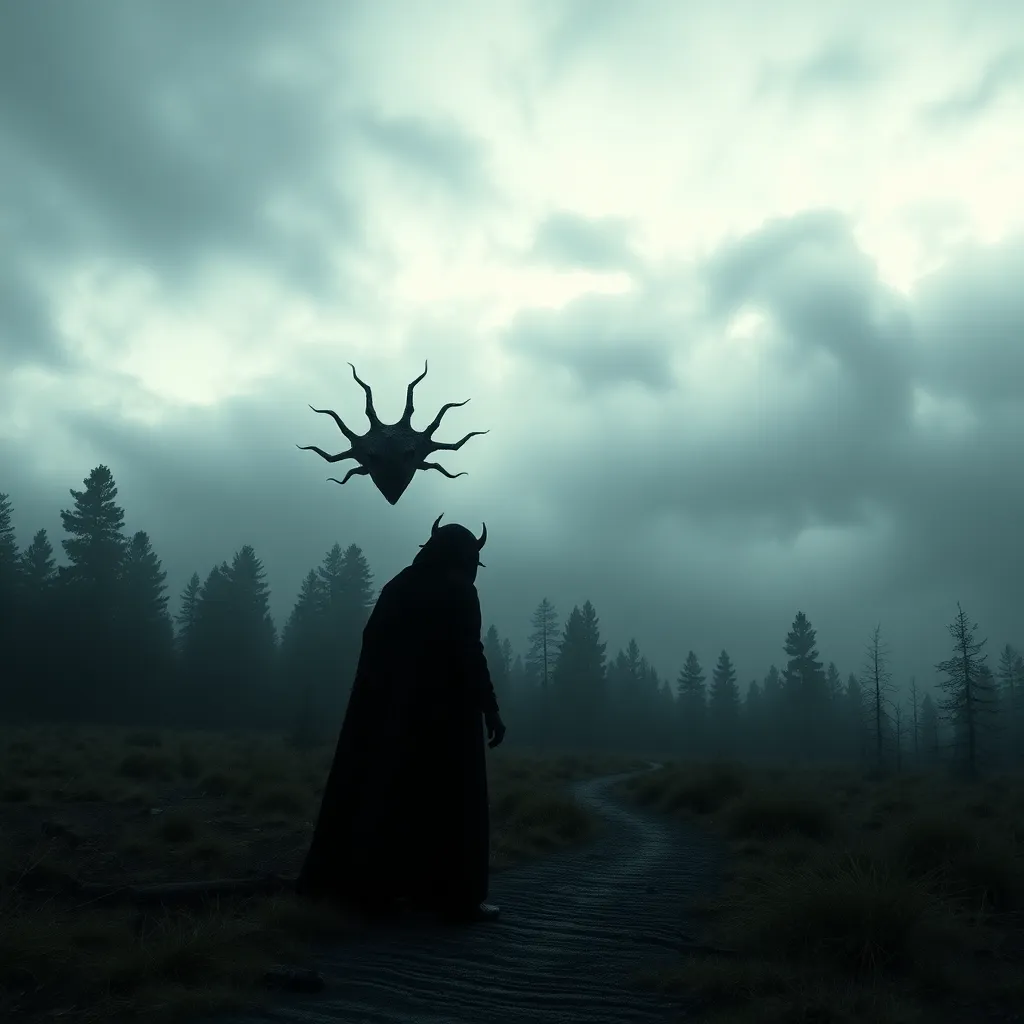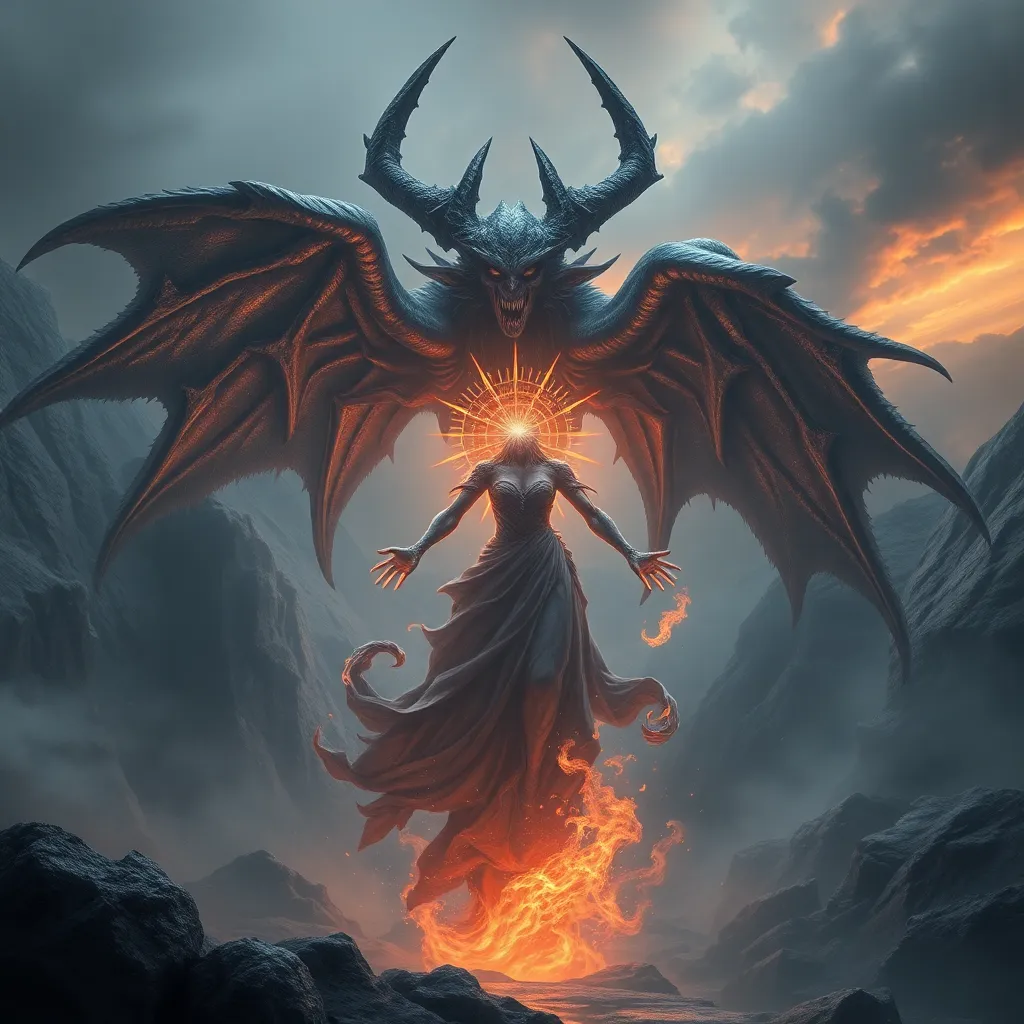The Skinwalker’s Message: Understanding the Human Need for Supernatural Belief
I. Introduction
The concept of the Skinwalker is deeply rooted in the mythology of the Navajo culture, representing a shapeshifter—often a witch who can transform into various animals. This enigmatic figure embodies the fear of the unknown and the darker aspects of humanity. The Skinwalker serves as a cautionary tale, warning against the misuse of power and the consequences of straying from cultural traditions. In this article, we will explore the significance of Skinwalker mythology, the psychological underpinnings of supernatural beliefs, and their cultural relevance both historically and in contemporary society.
Understanding the Skinwalker and similar supernatural beliefs is crucial as they reflect our innate desire to comprehend the chaotic nature of life and death, good and evil. This exploration will reveal how these narratives shape our understanding of the world and our place within it.
II. Historical Context of Skinwalker Legends
Skinwalker legends originate from the Navajo people, who refer to them as “yee naaldlooshii.” The term describes a being that has the ability to transform into any animal it desires, often representing the antithesis of traditional Navajo values. These stories have been passed down through generations, evolving to incorporate modern fears and social issues.
Over time, the Skinwalker myth has taken on various forms, adapting to contemporary societal contexts while retaining its core themes of transformation and moral ambiguity. This evolution can be compared to other supernatural beliefs worldwide, such as:
- Wendigo in Algonquin folklore, symbolizing greed and cannibalism.
- Werewolves in European mythology, representing the duality of human nature.
- Jinn in Middle Eastern folklore, embodying the unpredictable forces of nature.
III. Psychological Perspectives on Supernatural Beliefs
Supernatural beliefs often arise from human psychological needs, particularly in the face of fear and uncertainty. The Skinwalker, representing both a threat and a cautionary tale, encapsulates these psychological dimensions.
Several cognitive biases contribute to the inclination toward supernatural explanations:
- Confirmation Bias: Individuals tend to seek out information that confirms their existing beliefs.
- Pattern Recognition: Humans are wired to recognize patterns, which can lead to attributing meaning to random events.
- Anthropomorphism: The tendency to assign human-like qualities to non-human entities fuels the belief in supernatural beings.
Moreover, the need for control and understanding in human life drives individuals to seek explanations beyond the tangible, leading to the embrace of supernatural narratives.
IV. Cultural Significance of the Skinwalker
The Skinwalker serves as a potent symbol of transformation and duality, embodying the complexities of human nature. This figure often represents the struggle between good and evil, illustrating the consequences of moral transgressions.
These stories intertwine with cultural values, emphasizing the importance of community, respect for nature, and the dangers of unchecked power. The Skinwalker’s narrative has also influenced modern storytelling and media, evident in:
- Films and television shows that explore themes of transformation and morality.
- Books and literature that incorporate supernatural elements to delve into human psychology.
V. The Skinwalker in Contemporary Society
In today’s world, interpretations of the Skinwalker myth have evolved, often blending with popular culture. Modern adaptations explore the Skinwalker through various lenses, from horror to psychological thrillers, reflecting society’s ongoing fascination with the supernatural.
This resurgence of interest in supernatural beliefs can be seen in:
- Podcasts and documentaries discussing folklore and urban legends.
- Social media platforms where users share personal encounters with supernatural phenomena.
These beliefs serve important social functions in contemporary society, providing avenues for community bonding, shared experiences, and coping mechanisms in an increasingly complex world.
VI. The Role of Supernatural Beliefs in Coping Mechanisms
Supernatural beliefs often provide comfort during times of crisis, acting as coping mechanisms that help individuals navigate grief, loss, and uncertainty. The Skinwalker and similar myths offer narratives that allow people to process their experiences and find meaning in suffering.
In various cultures, healing traditions often incorporate supernatural elements, such as:
- Rituals that invoke spirits for protection and guidance.
- Stories that explain the presence of illness or misfortune as a moral lesson.
These narratives help individuals and communities to confront their fears and uncertainties, fostering resilience and hope.
VII. Criticism and Skepticism of Supernatural Beliefs
Despite the deep roots of supernatural beliefs in human culture, they are often met with skepticism. Scientific and rational perspectives challenge the validity of supernatural phenomena, arguing for explanations grounded in empirical evidence.
This skepticism has implications for cultural traditions, as it can lead to:
- Marginalization of cultural narratives and practices.
- Conflicts between modernity and traditional beliefs.
Striking a balance between belief and skepticism is essential in modern discourse, allowing for a respectful engagement with cultural narratives while acknowledging the importance of critical thinking.
VIII. Conclusion
The Skinwalker serves as a powerful symbol of the human need for supernatural beliefs, encapsulating themes of transformation, morality, and the unknown. These narratives reflect our desire to understand the complexities of life and death, good and evil, and the moral choices we face.
As we delve deeper into the significance of the Skinwalker and similar myths, we recognize the enduring human need for the supernatural. This exploration calls for a greater understanding and respect for cultural narratives, emphasizing the importance of preserving these stories in a rapidly changing world. By appreciating the role of supernatural beliefs in shaping human experiences, we can foster a more inclusive dialogue that honors both tradition and modernity.




